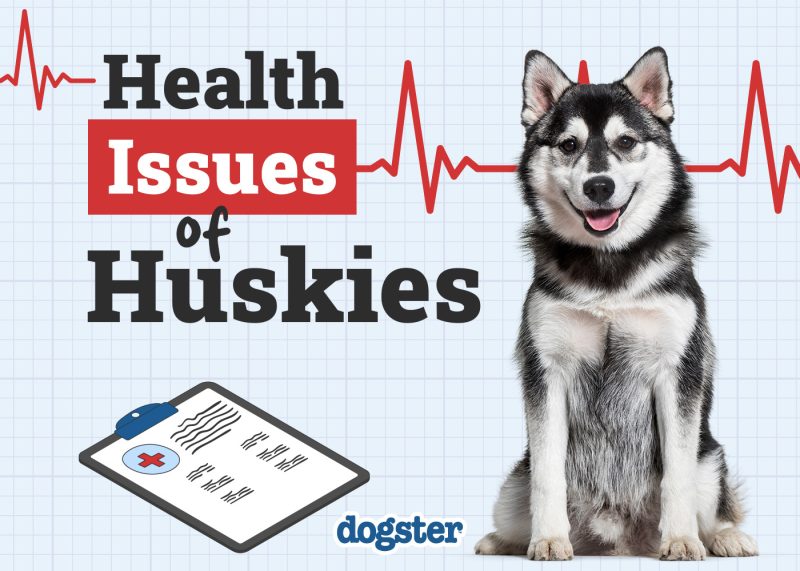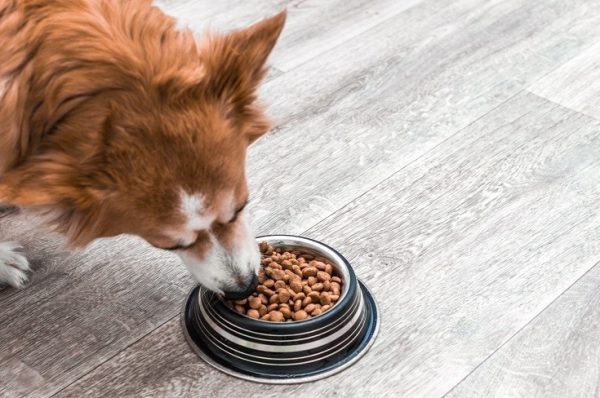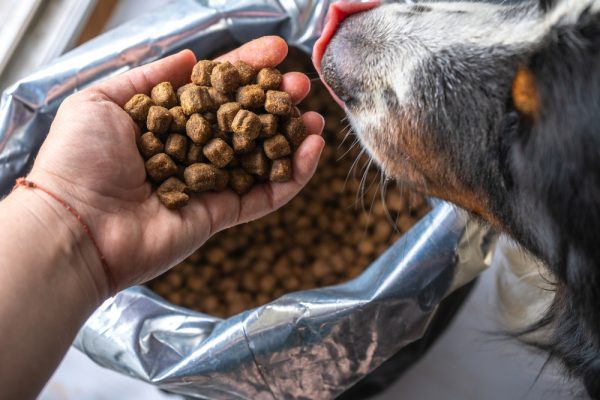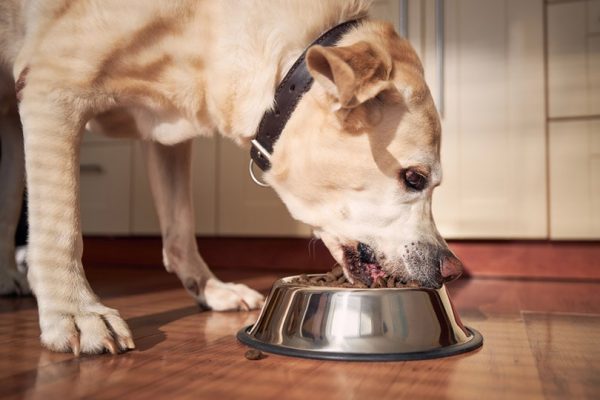In this article
Among all the possible culinary additions we might use to enhance the flavor, texture, and nutrition of our dog’s diet, we rarely need to question chicken broth. Chicken broth is healthy and tasty for dogs, presenting numerous perks if it’s free of seasonings and potentially harmful ingredients.
When you know the hazards of many chicken broth recipes, you can make better decisions about incorporating broth into your dog’s meals. To help your dog enjoy all of its benefits and none of its drawbacks, we’ll explore whether dogs can eat chicken broth and the best ways to serve it.

Why Can Dogs Eat Chicken Broth?
Chicken broth is a delicious, versatile addition to a dog’s diet. You can pour it over dry food to soften it and make it more palatable or add it to your dog’s water dish to entice them to drink and ensure your pet stays hydrated. Alternatively, you can freeze small portions in ice cube trays and offer them to your dog as a refreshing treat on a hot day!

Benefits of Feeding Chicken Broth to Dogs
Well-made chicken broth is rich in vital nutrients to support your dog’s digestion, immune system, nervous system, joints, muscles, and bones. The following are a few key benefits it could have for your dog.
Hydration and Flavor Enhancement
Staying hydrated is crucial for dogs to feel their best and maintain their body’s normal function. Factors like medications and illness can often cause dogs to reduce their eating or drinking habits, putting them at risk of dehydration or malnutrition.
Chicken broth can be a convenient way to add appealing flavors to your dog’s bowl if they have trouble motivating themselves to eat and drink. It only takes a small splash to impart a delicious chicken flavor to your dog’s water and food. Using it to soak dry food can also soften it as it enhances the taste, making it easier for dogs with dental issues to consume.
Muscle and Joint Development
Chicken broth contains collagen pulled from the connective tissues holding onto the chicken bones and meat. Collagen is abundant in the body, and when dogs digest chicken broth, they utilize the amino acids to strengthen joints, nourish the skin and coat, and repair muscles.
As dogs age, collagen production decreases, so adding chicken broth to the diet can help support healthy skin, muscles and joints. Plus, essential minerals like calcium also contribute to healthy bones, teeth, and muscles while promoting a stronger heart and better digestion.
Digestive Function
The amino acid glycine in collagen may also improve a dog’s digestive processes. Glycine helps promote the health of the stomach and gut walls and mucosa, and improves nutrient absorption.


What Is in Chicken Broth?
Chicken broth is a boiled combination of chicken meat, bones, or both, with various vegetables and spices added for flavor. Common ingredients you might find in commercial chicken broths include:
- Chicken meat and bones
- Yeast extract
- Carrots
- Onions
- Celery
- Apple cider vinegar
- Salt
- Spices (garlic powder, turmeric, etc.)
Chicken broth ingredients like onion and garlic powder are toxic to dogs and, if eaten in excess, can cause GI upset and damage red blood cells, leading to anemia. Fortunately, the trace amounts in broth are typically too minute to cause issues. The average dog would have to drink several quarts of broth to show ill effects, and the salt would likely affect them long before then.

Sodium
Though most chicken broth ingredients are safe for dogs to consume, you should consider the sodium level, as many products contain significant amounts of salt.
Store-bought chicken broth can contain anywhere from 200 mg to over 900 mg of sodium per cup, with low-sodium options having around 140 mg per cup. Along with their standard food, which typically has the recommended daily sodium amount, excessive amounts of high-sodium chicken broth can cause toxic effects, including:
- Vomiting
- Diarrhea
- Weakness
- Lethargy
- Loss of appetite
While large and giant breeds can usually stomach several tablespoons of salt without serious issues, toy dogs like Yorkies and Chihuahuas can quickly exceed their tolerance. Older dogs and those with heart, kidney, and metabolic disorders also benefit from lower sodium levels. Potential problems associated with high sodium intake can worsen when dogs can’t access fresh water.
Hypernatremia
Excessive salt intake can cause toxicosis or hypernatremia. Dogs may experience this when they eat as little as 2–3 grams of salt per kg of body weight.
High sodium levels create an electrolyte imbalance and draw water from the cells, causing neurological signs like head pressing, dizziness, and convulsions. Though rare, hypernatremia requires veterinary intervention and can cause coma and death in severe cases.
If you need to speak with a vet but can't get to one, head over to PangoVet. It's our online service where you can talk to a vet online and get the advice you need for your dog — all at an affordable price!

How to Make Chicken Broth for My Dog
Some store-bought broths offer a healthy mix of ingredients to satisfy your dog, but homemade chicken broth is a great choice, especially if you ever have leftover chicken and veggies to recycle. Ideally, you’ll have unseasoned chicken and bones, though a few spices won’t usually be harmful.
Place your chicken pieces into a slow cooker and cover them with clean, filtered water. Adding 1–2 tablespoons of apple cider vinegar will pull out more of the nutrients from the bones, enhancing the broth. If you have saved pieces of vegetables, you can add them to broaden the flavor and nutrient profile.
- Carrots
- Celery
- Bell peppers
- Spinach
- Peas
- Green beans
Cook the broth on low for 12–24 hours. When finished, strain the liquid into a container to remove all the solid bones, vegetables, and chicken pieces. Let the broth cool, and refrigerate the container. The broth will stay fresh when refrigerated for 3–4 days, or you can portion and freeze it for up to 3 months.
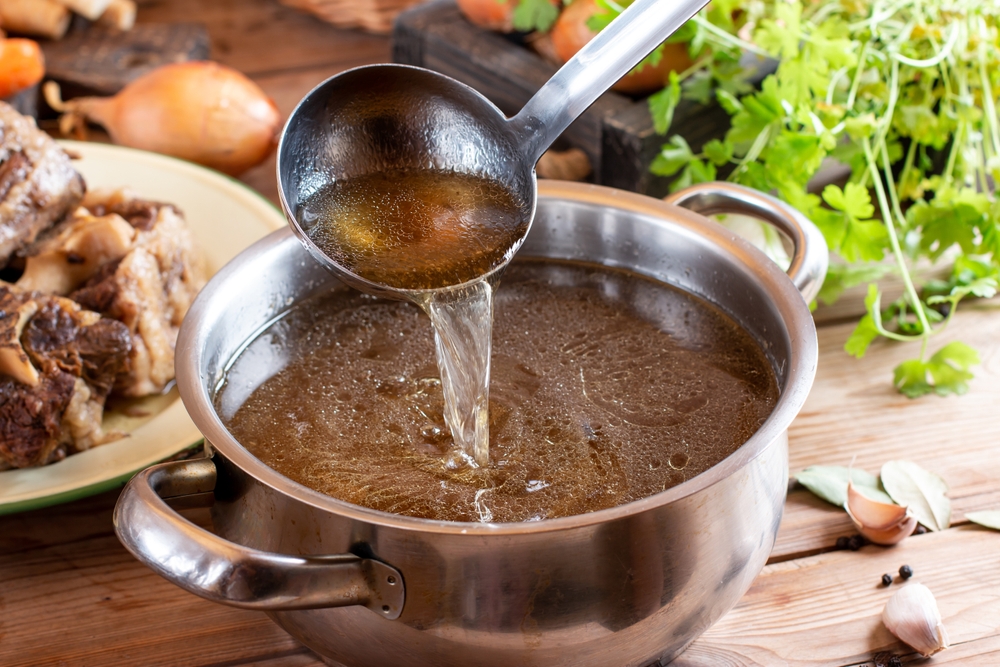

Conclusion
If you’re careful about the salt content and use simple ingredients, chicken broth can be a palatable and nutritious addition to the mealtime routine. You can try a little low-sodium broth initially to ensure your pet likes it and doesn’t show adverse effects. If they love the taste and tolerate it well, all that’s left is to find fun, creative ways to integrate this versatile flavor enhancer into your dog’s diet.
Featured Image Credit: Atsushi Hirao, Shutterstock



